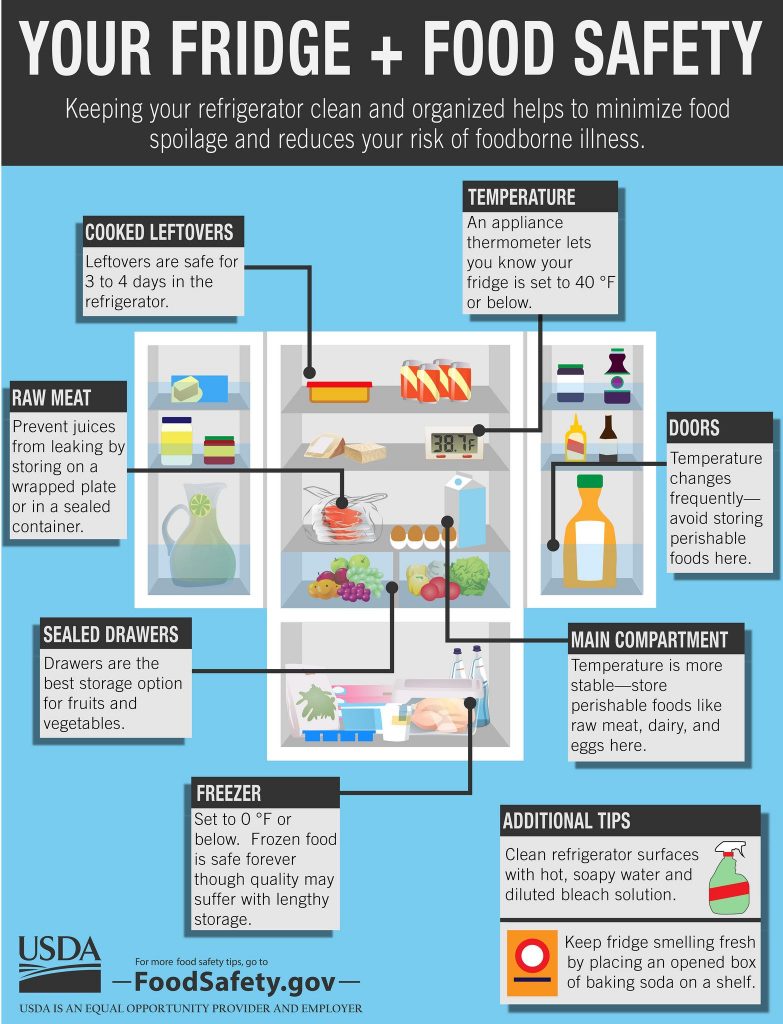Food poisoning can be an extremely unpleasant and painful experience for both adults and children alike. This disease occurs when you accidentally ingest food or water contaminated with harmful bacteria, viruses or parasites. The toxins made by these germs can cause food poisoning in humans.
The contamination can occur during any point of production, processing or due to improper cooking of food. This is especially true in the case of meat, as animal products can contain these toxins in their body and can cause sickness if not cooked completely.
Assumptions Around Food Poisoning
People tend to believe that leftovers can last as many days as you want it to if you refrigerate it. This often leads to painful situations of poisoning and stomach issues. There are bacteria in everything we consume. However, it is the good bacteria that go into our system that does not cause harm and aids in digestion. Food left in the open without proper storage can have multiple bacteria that can cause potential harm, and consuming it can lead to food poisoning.
The human body contains an ecosystem in the gut, made entirely of microbes without which digestion would be impossible. The food that we consume can sometimes encourage the growth of the good bacteria, such as in the case of yogurt, while it can do the opposite if you consume a contaminated food source. The food may fuel the harmful bacteria and cause them to multiply and cause repercussions on overall health.
What Are The Symptoms Of Food Poisoning?
This sickness has various symptoms that can vary based on the exact source of contamination. However, most cases tend to develop the following symptoms.
- Vomiting
- Watery stool
- Blood content in stool
- Vomiting
- Abdominal cramps or pain
- Fever
The signs usually commence hours after the consumption of contaminated food. In rarer cases, they can show up weeks or days later as well. Although unpleasant, food poisoning is harmless in most cases and only requires rest and hydration for complete recovery. It can last for a few hours or a couple of days.
In some cases, food poisoning can cause more severe harm as well. If the symptoms include extreme pain, dehydration, or any neurological symptoms, it has to be brought to the attention of a doctor immediately. If the sickness persists and lasts more than three days as well, medical attention may be deemed necessary.
How To Prevent Food Poisoning?
Food is often irresistible and a rare delight of life that never disappoints. Kids tend to love treats and special preparations and love indulging in them. This is all the truer during the festive season as food forms the core of all celebrations. Be it Christmas or Thanksgiving, nothing can be complete without food. Here are some tips to avoid food poisoning during the holidays. Food poisoning at home can be avoided with proper care while preparing the food. Here are some additional tips.

- Washing your hands and utensils well can remove a lot of toxins and bacteria on the surface. Your hands should be washed with soapy water not just after a meal, but before you prepare it as well. Using hot water for vessels also helps as it mildly sterilizes the utensil.
- Keeping raw food separated from processed ones: Keeping all forms of raw meat, poultry and fish away from any other food is essential to ensure the food stays healthy.
- Cooking foods to a safe temperature: Using a food thermometer, you can ensure that all of your raw meat has been cooked to a safe temperature. A lot of harmful organisms such as bacteria found in raw meat can be eliminated with the help of proper cooking to the right temperature.
- Using an effective method of preservation for storage: All foods that are a perishable need to be refrigerated or frozen within two hours of purchase or preparation. If the temperature of the region is higher than an average of 32 degree Celsius, the food can perish within just an hour.
- Safe defrosting of food: Thawing food directly at room temperature may seem logical but is an inaccurate way of defrosting. The best way to do the process is in the refrigerator. If you are utilizing a microwave oven, it is essential that you cook the food immediately after.
- When in doubt, dispose off: If the prepared food has been improperly stored or served, it may be better to not take the risk and throw the food away. Prepared food that is exposed at room temperature for a prolonged period of time can contain different sorts of contaminations and hence should be strictly avoided.
In conclusion, safeguarding against food poisoning is paramount for our well-being, and adopting these preventive measures can significantly reduce the risk of falling victim to this common yet preventable ailment. By practicing proper food handling, maintaining a vigilant awareness of expiration dates, cooking foods thoroughly, and practicing good hygiene in the kitchen, we empower ourselves to enjoy meals that nourish without the threat of foodborne illnesses. Ultimately, a conscious commitment to these simple yet effective strategies ensures not only the safety of our dining experiences but also contributes to the overall health and vitality of ourselves and our loved ones. So, let us embrace these habits as essential tools in our culinary arsenal, creating a safer and more enjoyable dining environment for all.








